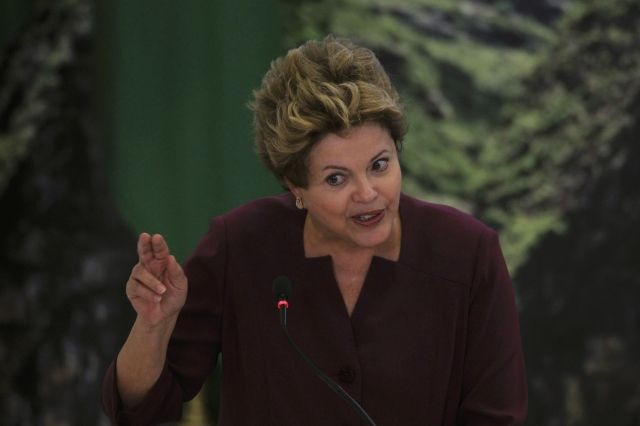Brazil’s President Dilma Rousseff Proposes Referendum For Sweeping Political Reforms, Pledges More Public Services Spending In Response To Continuing Nationwide Protests

In an attempt to win back public support after massive public protests rocked Brazil, President Dilma Rousseff on Monday pledged social reforms and a referendum to amend the nation’s constitution in a move that has been called overreaching and ambitious, as she is due for re-election in 2014.
While the dust is yet to settle on the biggest anti-government protests the country has seen in two decades, Rousseff pledged 50 billion reais ($22.5 billion) for urban transport reforms and one percent of the nation's oil royalties to be spent on public education, and to form a national council in charge of public transportation, Bloomberg reported.
“The streets are telling us that the country wants quality public services, more effective measures to combat corruption ... and responsive political representation,” Rousseff, who met with protest leaders on Monday, was quoted as saying by Reuters.
Nationwide demonstrations, which ballooned to include about 1 million people at its peak last week, to demand better public services and comprehensive political reforms, rejected a draft law known as PEC 37, which would transfer power to conduct investigations on corruption and human rights crimes committed by public officials, to the police from federal authorities.
In a meeting on Monday with governors and mayors, Rousseff said voters can decide whether they support amending the constitution to reform the nation’s political system, which has been blamed by the protesters as the root of corruption and ineffectual spending. She also vowed to classify corruption under the category of the country’s most serious crimes.
However, Rousseff has not presented a roadmap for the political overhaul, while doubts have been raised about the feasibility of a thorough political change in an atmosphere of uncertainty preceding Brazil's national elections, which are scheduled for October 2014.
“The creation of a Constituent Assembly to deliver a deep cutting political reform could add another element of medium-term uncertainty,” Alberto Ramos, chief Latin American economist at Goldman Sachs, said in a note to clients, according to Reuters. “These transformational events tend to take a long time and the final outcome is extremely hard to predict.”
Brazil’s last major political overhaul happened 25 years ago, when the country’s last Constituent Assembly adopted the present Brazilian constitution, marking the formation of a democratic republic and the end of a military dictatorship.
The protests, which continued over the weekend and on Monday, are slated to go on all week, news reports said. Two women were killed during a protest on Monday outside the capital, Brasilia, by a speeding vehicle, raising the total death toll in the nationwide protests to four, reports said, citing Brazil’s federal highway police.
© Copyright IBTimes 2024. All rights reserved.






















